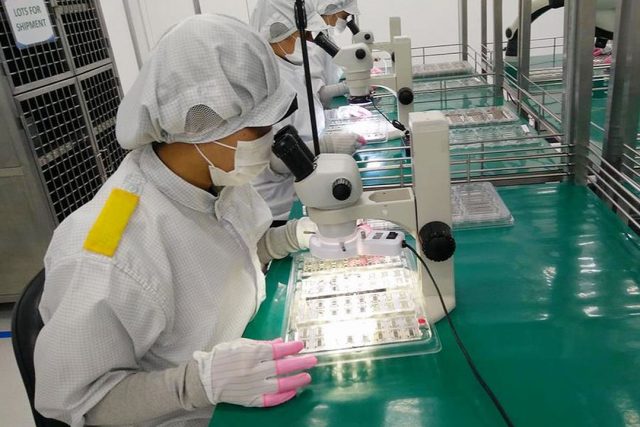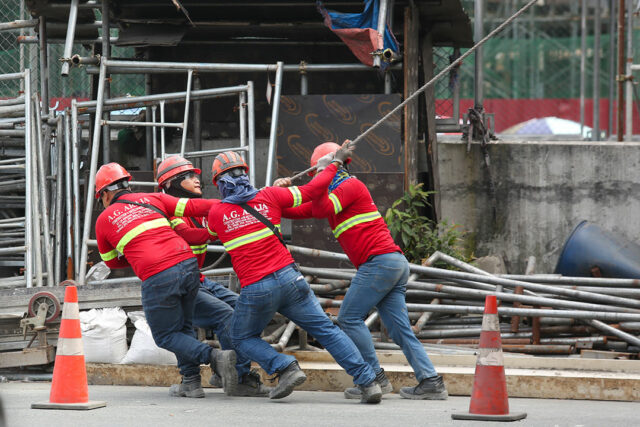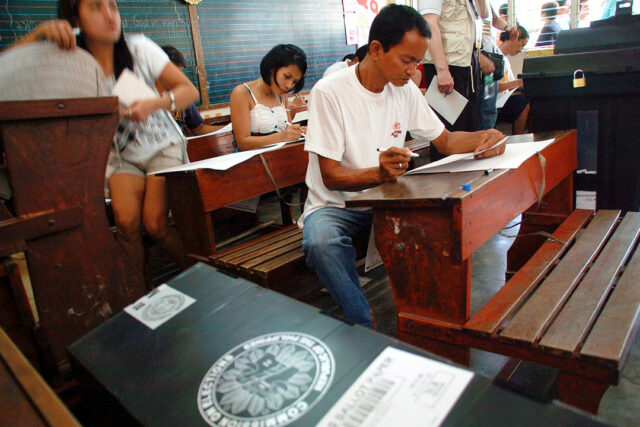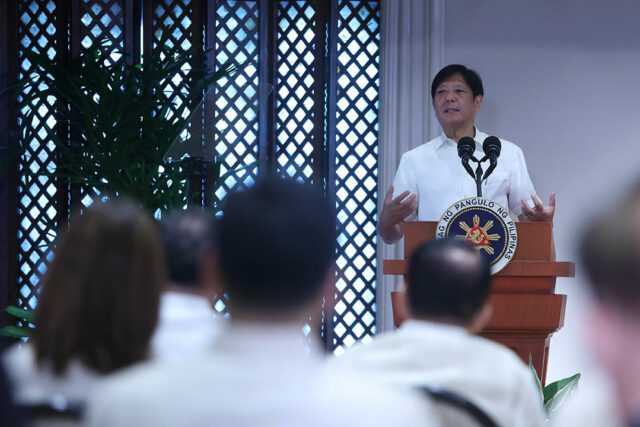By Kenneth Christiane L. Basilio, Chloe Mari A. Hufana and John Victor D. Ordoñez, Reporters
A HOUSE of Representatives committee on Thursday approved a bill that seeks to grant a P200 across-the-board wage increase for private-sector workers, nudging the bill forward after it was mothballed for eight months.
The House labor committee unanimously approved an unnumbered substitute bill, consolidating three measures that seek to raise wages by P150 to P750.
“The House… deemed it necessary to propose a wage increase for our workers due to rising prices,” Rizal Rep. Juan Fidel Felipe F. Nograles, who heads the House labor body, told reporters in Filipino after the bill’s approval.
The power or mandate to pass laws belongs to both Houses of Congress,” Labor Secretary Bienvenido E. Laguesma told BusinessWorld in a Viber message. “If the proposed wage hike bill becomes a law, the duty and obligation of the Labor department is to implement it.”
Minimum wages in the Southeast Asian nation are set by regional wage boards. But slow and meager increases amid rising prices have prompted lawmakers to push the legislated wage increase. The Senate approved a counterpart proposal for a P100 daily wage increase for private-sector workers in February last year.
“All employers in the private sector, whether agricultural or nonagricultural, regardless of capitalization and number of employees, shall pay their workers an across-the-board wage increase in the sum of P200 a day upon the effectivity of this act,” according to a copy of the bill.
The Labor department must inspect the payroll and financial records of Philippine companies to check compliance. Noncompliant employers face imprisonment of up to four years and a fine of as much as P100,000.
“The employer concerned shall be ordered to pay an amount equivalent to double the unpaid benefits owed to employees.”
The House labor committee pushed a P200 wage increase to boost 5 million minimum wage earners out of poverty, Deputy Speaker and Party-list Rep. Raymond Democrito C. Mendoza, who authored the bill, said in a statement.
“At present, everyone is below the poverty threshold, except in the National Capital Region,” he told reporters in Filipino. “All regions will be over the threshold [once the bill is enacted].”
A family of five needed at least P13,873 a month to meet minimum basic food and nonfood needs in 2023, according to the Philippine Statistics Authority. There are about 2.9 million Filipino families living in poverty.
Only 16% of all Filipino workers stand to benefit from the proposal, Sergio R. Ortiz-Luis, Jr., president of the Employers Confederation of the Philippines (ECoP), told reporters via teleconference. “Let’s leave it to the Regional Wage Boards. We’re quite sad that it’s being pushed again now.”
“What needs to be known is that out of the 52 million workers in the labor market, only 16% would benefit from the legislated wage hike. The other 84% are from the informal sector,” he said in Filipino.
There were 49.54 million employed Filipinos in November 2024, according to latest government data.
Mr. Ortiz-Luis said businesses are at risk of shutting down if the wage hike order is signed into law. “There’s only one remedy — they’ll try to raise their prices if the market can handle it, reduce their workforce, or if they really can’t manage, they’ll just close down.”
“For the benefit of a few, we will sacrifice the economy,” he added.
Mr. Nograles said they are looking at supporting micro, small and medium enterprises (MSME) that would be affected by the wage hike.
“That’s a separate matter because our bill is only about the wage increase,” he said in Filipino. “We need a separate law or policy to support MSMEs.”
Mr. Mendoza urged President Ferdinand R. Marcos, Jr. to certify the wage hike bill as urgent to fast-track its approval. Congress will adjourn for four months next week to give way for the 2025 midterm elections.
Senate President Francis “Chiz” G. Escudero said they would work with the House to refine the bill.
“Although we have only nine session days left, I welcome the openness of the House, at this time, in passing this Senate-initiated measure,” he told reporters in a Viber message. “I look forward to working with them on this.”
“I will instruct committee secretaries to monitor House hearings so the members of the Senate can be kept abreast [of developments],” he added.
The Regional Tripartite Wages and Productivity Board of the National Capital Region in July last year approved a P35 minimum wage hike for workers in Metro Manila, bringing the daily pay for nonagricultural workers to P645.
BETTER THAN NOTHING
This was way lower than the petitions filed by labor groups seeking monthly pay increases of P597 to P750.
Labor groups welcomed the House committee’s approval of the P200 wage hike, but said it is still far from a livable minimum wage.
“For too long, wages have been stagnant — stuck longer than EDSA traffic — while prices of basic goods like rice, gas and transportation including Social Security System and Philippine Health Insurance Corp. contributions continue to climb like they’re in a race we never signed up for,” Jose Sonny G. Matula, president of the Federation of Free Workers, said in a statement.
The labor group said it remains firm in seeking a “true living wage” under the 1987 Constitution —“one that ensures workers can live with dignity, provide for their families and keep up with rising costs.”
The proposed P200 wage increase is better than nothing, University of the Philippines Diliman School of Labor and Industrial Relations Assistant Professor Benjamin B. Velasco told BusinessWorld.
“While people will suspect that this is just electioneering by the House leadership, the labor movement should grab the opportunity to push its wage campaign and get ordinary workers on board and develop a movement,” he said in a Facebook Messenger chat.
“A P200 wage hike will be good for workers and the economy because it will boost consumer purchasing power and boost gross domestic product. Even big businesses and MSMEs will benefit,” he added, noting that the last across-the-board hike was in 1989, when the daily minimum wage was raised to P64 from P25.
Employers Confederation of the Philippines Governor Arturo C. Guerrero III said the wage hike is being pushed ahead of the midterm elections in May.
Wage hikes must go through the wage boards, he told BusinessWorld by telephone, noting that the Philippines has the second-highest daily minimum wage in Southeast Asia.
At least 14 wage boards issued daily wage increases of P21 to P75 for private sector workers in 2024, according to the Labor department.












